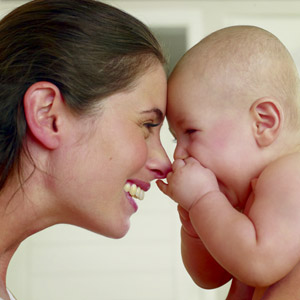A New Mother's Guide to Breastfeeding/Why should I breastfeed?
Contents
Why should I breastfeed?
As a new mother you will be faced with many decisions regarding the care of your new baby. One of the first and most important decisions you will make is whether you should breastfeed your baby. Experts agree that breastfeeding your baby for any length of time, regardless of how short, is of benefit to you and your baby. The following sections will discuss the benefits of breastfeeding your baby in detail.
JOIN THE BOOB-OLUTION!! (Click here to watch a breastfeeding promotion video.) --> [1]
Benefits of Breastfeeding (Click here to watch an informational video.) --> [2]
Nutritional Benefits of Breastfeeding
The strongest reason for breastfeeding your new baby is that human breast milk is widely accepted as the optimum nutrition of choice for your new baby. The American Academy of Pediatrics (AAP) recommends exclusive breastfeeding for a minimum of at least 6 months to 12 months or longer. Breast milk contains appropriate amounts of carbohydrate, protein, and fat. It also provides digestive enzymes, minerals, vitamins, and hormones that all infants require.
For additional information click the following link (Click Here) --> [3]
Immunologic Benefits of Breastfeeding
The first few months of a baby’s life they are susceptible to a variety illnesses due to the fact their immune system is still developing. When you breastfeed your baby you provide him or her with additional protection via the passing of IgA antibodies, an immunoglobulin, in colostrum and breast milk. Research indicates that the passive immunity established with the passing of IgA antibodies from mother to child results in breastfed babies having less frequent:
- Ear infections
- Stomach or intestinal infections
- Digestive problems, such as constipation or diarrhea
- Skin diseases (infantile eczema)
- Allergy problems (infantile allergies) Hospitalizations in the first year of life
In addition, breastfed babies may have less risk of becoming overweight or developing high blood pressure, diabetes, iron-deficiency anemia, and tooth decay.
The health benefits of breastfeeding are not isolated to your baby alone. Moms who breastfeed their babies may enjoy:
- Easier weight loss
- Less post-partum bleeding
- Enhancement of the unique bond between mother and child
- A reduced risk of breast, uterine, and ovarian cancer
Psychosocial Benefits of Breastfeeding
One the biggest psychosocial benefit of breastfeeding is the bonding that occurs between mother and baby. When a mother chooses to breastfeed she often has more skin-to-skin contact with her baby. Research indicates that increased skin-to-skin contact provides immense psychological benefits for both the mother and the baby. Infants with increased skin-to-skin contact show greater physiologic stability, cry less, sleep, longer, and tend to breastfeed better.
References
American Academy of Pediatrics (AAP) Section on Breastfeeding. (2005) Policy statement: Breastfeeding and the use of human milk. Pediatrics, 115(2), 496-506.
(2007, March 23). Benefits of breastfeeding- English [Video file]. Retrieved from http://www.youtube.com/watch?v=51gFMAR3hVg
Davidson, M., London, M., & Ladewig, P. (2008). Newborn Nutrition. In Maura Conner (Ed.), Olds' maternal-newborn nursing & women's health across the lifespan (8th ed., Rev., pp. 890-927). Upper Saddle River, New Jersey: Pearson Education, Inc.
Lawrence, R.A., & Lawrence, R.M. (2005). Breastfeeding: A guide for the medical profession (6th ed.). Philadelphia: Mosby.
Pinto, S., & Schub, T. (2010). Breastfeeding: Interventions to Promote Initiation and Extend Duration of Breastfeeding. Retrieved from CINAHL Plus with Full Text database.
TheBumpTV (2010, August 16). Breastfeeding: Join the boob-olution! [Video file]. Retrieved from http://www.youtube.com/user/TheBumpTV#p/u/0/7SM7Hvjqny4
